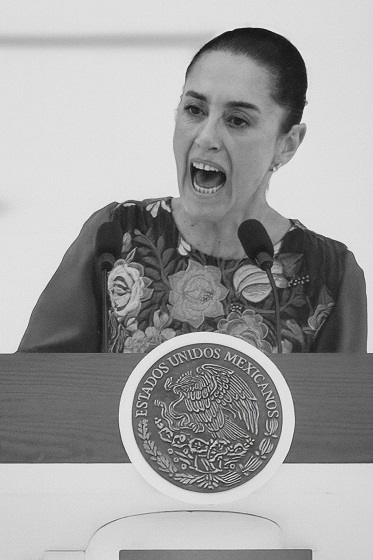Alberta
Loss of Brother to Addiction and Mental Illness Inspires Sister to Raise Money by Selling Face Masks.

Starting June 10th, until midnight Sunday, June 13th customers across Canada can help raise funds for Mental Health Organizations in their own provinces by purchasing much needed luxury cotton face masks.
Jodee Prouse, from Sylvan Lake, Alberta, co-owner of Service Mask Supply (SMS) is the provider of one of Canada’s best-selling luxury 3-layer Cotton Face Masks. She announced today that they will be donating $1.00 from every mask purchase on June 10, 11, 12 and 13th to Mental Illness Programs and Organizations in communities across Canada. “We all look forward to when we no longer need to wear face masks,” says Jodee, “and we are getting really close. I am proud that we can provide a much-needed product and at the same time allow others the opportunity to come together to raise money for Mental Health in their own communities.”
SMS is excited to announce that for 4 days this week, $1.00 from every mask will be donated to different Mental Health Organizations across Canada. Customers can place their order online, each mask is $5.00, and will ship directly to their homes or businesses. Jodee is proud of her team and orders quickly ship the next business day, leaving from their warehouse in Alberta. All monies collected will go back into each province to where the order was shipped. As an example, Alberta portion will go back to Canadian Mental Health Association Alberta Division, Manitoba to Rainbow Resource Centre and so on. This allows every Canadian the opportunity to make a difference and take part.
From the beginning, SMS had an amazingly simple business model, originally supplying schools and oilfield companies: provide comfortable and affordable masks (each is only $5.00) with patterns that make people smile. Smile. It is what Jodee and her business partner son Ryan believes we need more of right now during these unprecedented times. “My son and I, at different times in our lives, have both struggled with anxiety and depression. We lost a much-loved member of our family when our brother/uncle lost his battle with mental illness and alcoholism when he took his own life in March of 2012. He was only 39. This helped solidify our commitment to helping to eliminate the shame and stigma surrounding mental health.”
Now more than ever we want to bring communities together. And remind people they are not alone.

SMS is proud to be celebrating over 17,000 customers across Canada this week. They know that much of their success has been driven by their passionate customers, repeat business and recommendations to family, friends, and co-workers. “It fills my heart to receive not only Facebook messages and emails daily on how much they love our masks,” says Jodee, “but also the heartfelt words where strangers feel comfortable and safe enough to share some of their own mental health or addiction challenges.”
SMS has over 150 unique colors and patterns with such unique designs as sunflowers, flamingo’s, tie dye, dog lover, pretty kitties, fishing lures, butterflies, hearts, breast cancer, yoga, fine wine, pride, cupcakes and many more. Great for work, play, indoors and outdoors too with sizes for the whole family.
Learn more visit: www.servicemasksupply.ca
For more information you can email [email protected]
Alberta
Carney forces Alberta to pay a steep price for the West Coast Pipeline MOU

From the Fraser Institute
The stiffer carbon tax will make Alberta’s oil sector more expensive and thus less competitive at a time when many analysts expect a surge in oil production. The costs of mandated carbon capture will similarly increase costs in the oilsands and make the province less cost competitive.
As we enter the final days of 2025, a “deal” has been struck between Carney government and the Alberta government over the province’s ability to produce and interprovincially transport its massive oil reserves (the world’s 4th-largest). The agreement is a step forward and likely a net positive for Alberta and its citizens. However, it’s not a second- or even third-best option, but rather a fourth-best option.
The agreement is deeply rooted in the development of a particular technology—the Pathways carbon capture, utilization and storage (CCUS) project, in exchange for relief from the counterproductive regulations and rules put in place by the Trudeau government. That relief, however, is attached to a requirement that Alberta commit to significant spending and support for Ottawa’s activist industrial policies. Also, on the critical issue of a new pipeline from Alberta to British Columbia’s coast, there are commitments but nothing approaching a guarantee.
Specifically, the agreement—or Memorandum of Understanding (MOU)—between the two parties gives Alberta exemptions from certain federal environmental laws and offers the prospect of a potential pathway to a new oil pipeline to the B.C. coast. The federal cap on greenhouse gas (GHG) emissions from the oil and gas sector will not be instituted; Alberta will be exempt from the federal “Clean Electricity Regulations”; a path to a million-barrel-per day pipeline to the BC coast for export to Asia will be facilitated and established as a priority of both governments, and the B.C. tanker ban may be adjusted to allow for limited oil transportation. Alberta’s energy sector will also likely gain some relief from the “greenwashing” speech controls emplaced by the Trudeau government.
In exchange, Alberta has agreed to implement a stricter (higher) industrial carbon-pricing regime; contribute to new infrastructure for electricity transmission to both B.C. and Saskatchewan; support through tax measures the building of a massive “sovereign” data centre; significantly increase collaboration and profit-sharing with Alberta’s Indigenous peoples; and support the massive multibillion-dollar Pathways project. Underpinning the entire MOU is an explicit agreement by Alberta with the federal government’s “net-zero 2050” GHG emissions agenda.
The MOU is probably good for Alberta and Canada’s oil industry. However, Alberta’s oil sector will be required to go to significantly greater—and much more expensive—lengths than it has in the past to meet the MOU’s conditions so Ottawa supports a west coast pipeline.
The stiffer carbon tax will make Alberta’s oil sector more expensive and thus less competitive at a time when many analysts expect a surge in oil production. The costs of mandated carbon capture will similarly increase costs in the oilsands and make the province less cost competitive. There’s additional complexity with respect to carbon capture since it’s very feasibility at the scale and time-frame stipulated in the MOU is questionable, as the historical experience with carbon capture, utilization and storage for storing GHG gases sustainably has not been promising.
These additional costs and requirements are why the agreement is the not the best possible solution. The ideal would have been for the federal government to genuinely review existing laws and regulations on a cost-benefit basis to help achieve its goal to become an “energy superpower.” If that had been done, the government would have eliminated a host of Trudeau-era regulations and laws, or at least massively overhauled them.
Instead, the Carney government, and now with the Alberta government, has chosen workarounds and special exemptions to the laws and regulations that still apply to everyone else.
Again, it’s very likely the MOU will benefit Alberta and the rest of the country economically. It’s no panacea, however, and will leave Alberta’s oil sector (and Alberta energy consumers) on the hook to pay more for the right to move its export products across Canada to reach other non-U.S. markets. It also forces Alberta to align itself with Ottawa’s activist industrial policy—picking winning and losing technologies in the oil-production marketplace, and cementing them in place for decades. A very mixed bag indeed.
Alberta
West Coast Pipeline MOU: A good first step, but project dead on arrival without Eby’s assent

The memorandum of understanding just signed by Prime Minister Mark Carney and Premier Danielle Smith shows that Ottawa is open to new pipelines, but these are unlikely to come to fruition without British Columbia Premier David Eby’s sign-off, warns the MEI.
“This marks a clear change to Ottawa’s long-standing hostility to pipelines, and is a significant step for Canadian energy,” says Gabriel Giguère, senior policy analyst at the MEI. “However, Premier Eby seems adamant that he’ll reject any such project, so unless he decides not to use his veto, a new pipeline will remain a pipedream.”
The memorandum of understanding paves the way for new pipeline projects to the West Coast of British Columbia. The agreement lays out the conditions under which such a pipeline could be deemed of national interest and thereby, under Bill C-5, circumvent the traditional federal assessment process.
Adjustments to the tanker ban will also be made in the event of such a project, but solely for the area around the pipeline.
The federal government has also agreed to replace the oil and gas emissions cap with a higher provincial industrial carbon tax, effective next spring.
Along with Premier Eby, several First Nations groups have repeatedly said they would reject any pipeline crossing through to the province’s coast.
Mr. Giguère points out that a broader issue remains unaddressed: investors continue to view Canada as a high-risk environment due to federal policies such as the Impact Assessment Act.
“Even if the regulatory conditions improve for one project, what is Ottawa doing about the long-term uncertainty that is plaguing future projects in most sectors?” asks the researcher. “This does not address the underlying reason Carney has to fast-track projects piecemeal in the first place.”
Last July, the MEI released a publication on how impact assessments should be fair, transparent, and swift for all projects, not just the few favoured by Ottawa under Bill C-5.
As of July, 20 projects were undergoing impact assessment review, with 12 in the second phase, five in the first phase, and three being assessed under BC’s substitution agreement. Not a single project is in the final stages of assessment.
In an Economic Note published this morning, the MEI highlights the importance of the North American energy market for Canada, with over $200 billion moving between Canada and the United States every year.
Total contributions to government coffers from the industry are substantial, with tens of billions of dollars collected in 2024-2025, including close to C$22 billion by Alberta alone.
“While it’s refreshing to see Ottawa and Alberta work collaboratively in supporting Canada’s energy sector, we need to be thinking long-term,” says Giguère. “Whether by political obstruction or regulatory drag, Canadians know that blocking investment in the oilpatch blocks investment in our shared prosperity.”
* * *
The MEI is an independent public policy think tank with offices in Montreal, Ottawa, and Calgary. Through its publications, media appearances, and advisory services to policymakers, the MEI stimulates public policy debate and reforms based on sound economics and entrepreneurship.
-

 Business2 days ago
Business2 days agoFederal major projects list raises questions
-

 Agriculture2 days ago
Agriculture2 days agoHealth Canada indefinitely pauses plan to sell unlabeled cloned meat after massive public backlash
-

 Artificial Intelligence1 day ago
Artificial Intelligence1 day agoTrump’s New AI Focused ‘Manhattan Project’ Adds Pressure To Grid
-

 Business2 days ago
Business2 days agoBlacked-Out Democracy: The Stellantis Deal Ottawa Won’t Show Its Own MPs
-

 International24 hours ago
International24 hours agoAfghan Ex–CIA Partner Accused in D.C. National Guard Ambush
-

 International2 days ago
International2 days agoAmerica first at the national parks: Trump hits Canadians and other foreign visitors with $100 fee
-

 Crime2 days ago
Crime2 days agoFBI Seizes $13-Million Mercedes Unicorn From Ryan Wedding’s Narco Network
-

 Crime2 days ago
Crime2 days agoMexico’s Constitutional Crisis











